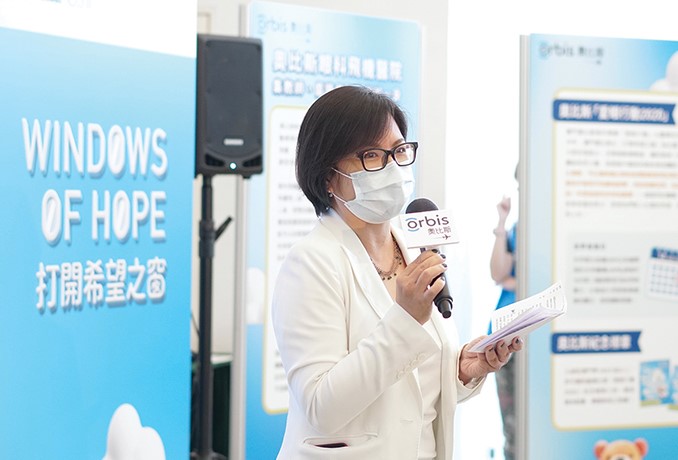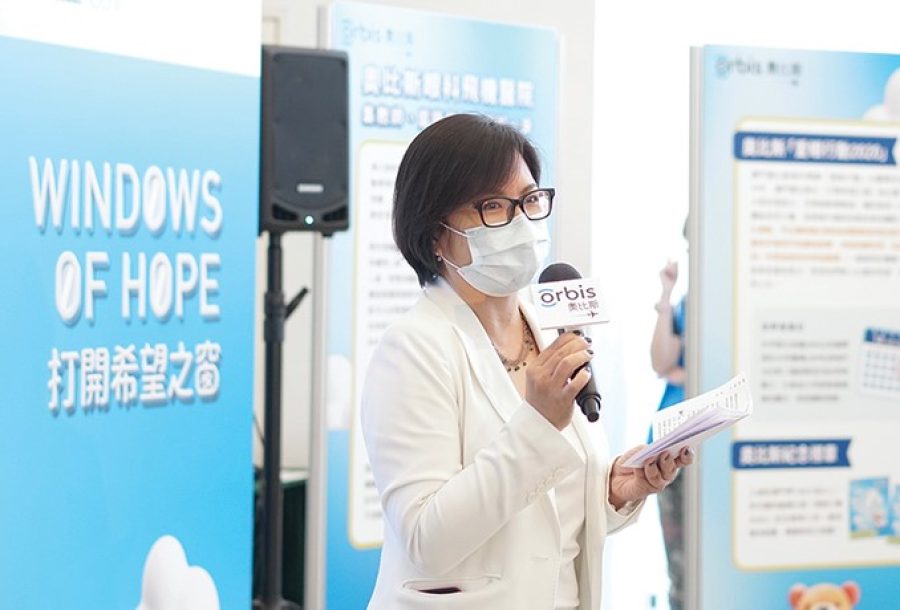Despite the on-going Covid-19 pandemic, which has led to the suspension of the renowned Orbis Flying Eye Hospital, Orbis continues its work through Cybersight, the director of Development and chairperson of the Executive Committee of Orbis Macau, Isabel da Silva, said on Monday.
Silva made the remarks during an interview with the Macau Post Daily on Monday at the organisation’s headquarters in Rua de São Domingos.
Silva pointed out that Orbis’ Flying Eye Hospital, a signature feature of the organisation, is a fully accredited ophthalmic teaching hospital on board an MD-10 aircraft that visits countries and regions for training and medical assistance. However, she added that due to the fact that many countries and cities are experiencing Covid-19 lockdowns, Orbis has been working through Cybersight instead.
According to a statement provided by Orbis Macau on Monday, Cybersight is a telemedicine platform. The statement also said that the Volunteer Faculty of Orbis teaches and supports eye care teams around the world, including geographically isolated communities and areas of conflict. The statement pointed out that Cybersight uses the latest advancement in internet and mobile technologies to provide local eye care teams’ virtual access to clinical training, live lectures and surgical demonstrations from the Flying Eye Hospital and on-demand advice for complex patient cases.
Silva told the Macau Post Daily on Monday that even though Cybersight has been running since June 2003, the number of users increased drastically from 16,000 to over 28,000 people in the past six months due to the Covid-19 pandemic. She also said that Cybersight was able to convert some medical programmes, mentoring, training and consultation to an online platform.
Silva said that Orbis was developing a new artificial intelligence (AI) tool on Cybersight that examines digital photographs to detect common eye diseases in eight seconds, allowing more eye doctors in low-resource countries to provide early detection for their patients.
‘Not been an easy year’
Silva noted that Orbis Macau is a fundraising subsidiary of Orbis International, adding that her organisation has been around for more than 10 years. She also said that as an international non-profit organisation (INGO), many people living in Macao believed in Orbis’ work and had been supportive.
Silva said that she joined Orbis Macau in December last year because through this role she could witness how the organisation has been having an impact on people. She added that when she realised 75 per cent of eye diseases were avoidable, she decided to do more advocacy work about eye care in Macao.
When asked how the Covid-19 pandemic has been affecting her organisation, she confessed that “it has not been easy this year”. She said that all NGOs have experienced a decrease in donations, but she acknowledged that she’s quite upset that her group has not been able to organise in-person events and visit donors. To cope with the situation, she said that most of the work has been relocated online, for example, e-raffles and promotions.
20-20-20 rules
Silva said that her short-term goal for now was to reach more sectors and segments in Macao, adding that besides fundraising, she would like to reach new segments of civil society. She pointed out that experts believe that by 2050 the number of people losing their sight will triple due to the ageing world population and increased use of technology. She also stressed the importance of the 20-20-20 rules, meaning every 20 minutes of work, one should take a 20-second break by looking at something 20 feet or metres away.
When asked how people could promote or fundraise for Orbis, Silva said that other than becoming a monthly Orbis Macau donor, people could attend Orbis’ upcoming joint event with Kiang Wu Hospital about glaucoma. Besides, people also can invite Orbis to talk about its work at private events or take part in “commemorative events”. She added that commemorative events are private parties such as weddings where a donation box for Obis is placed, or donate part of the event revenues to Orbis.
(The Macau Post Daily/Macau News)






